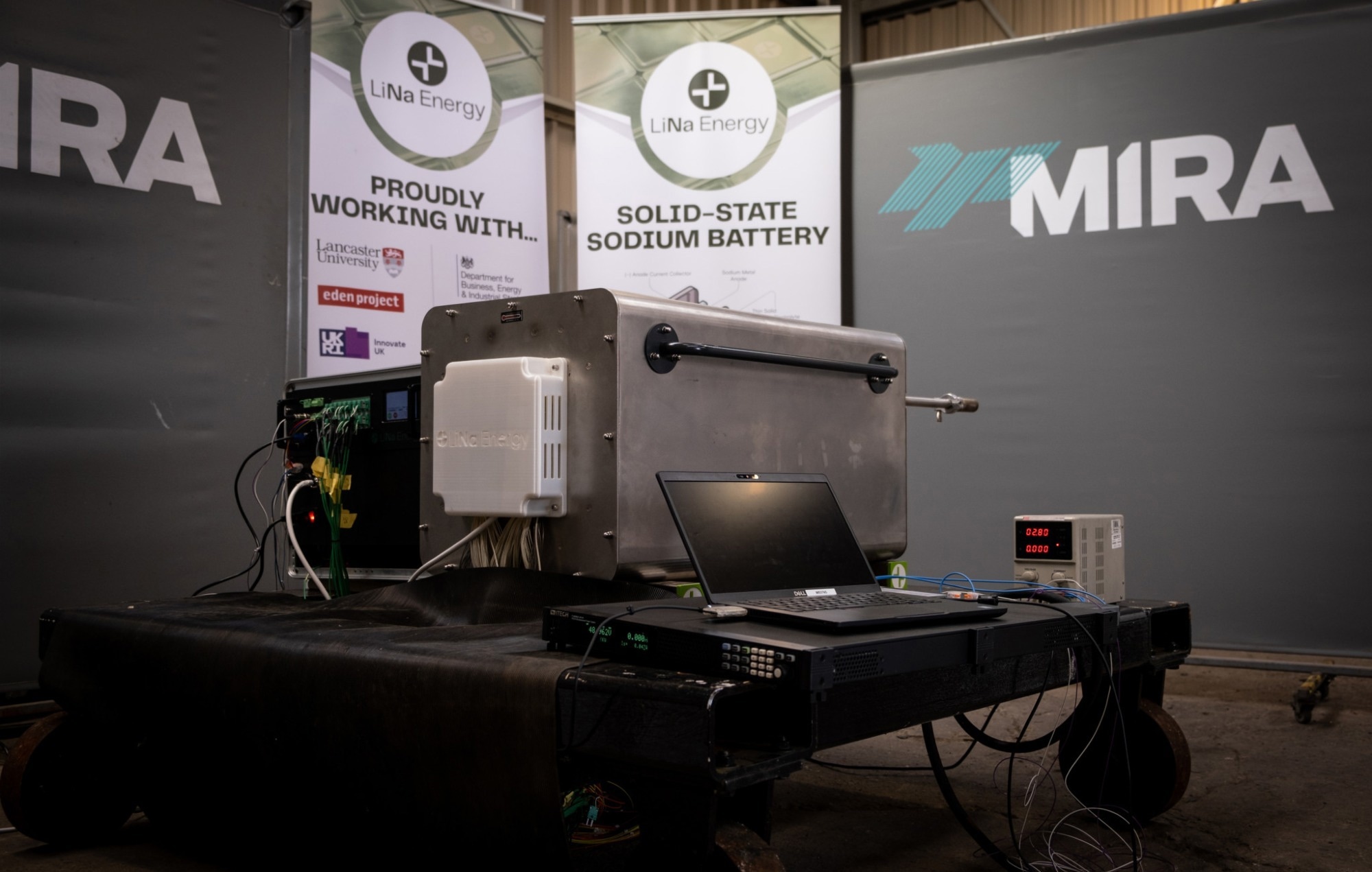
Image Credit: LiNa Energy
Recently, LiNa Energy – a sustainable start-up company from Lancaster, UK, has successfully proven the potential of its sodium technology for use in battery energy storage systems which marks a breakthrough for next-gen, lithium-free batteries.
"Electrical grids all around the world will need energy storage assets as renewable generation increases. This is an important demonstration for LiNa Energy, showcasing this technology’s potential to meet the needs of this market."
Rich Dawson, LiNa’s CTO
Lithium-based batteries are the dominant technology that is finding use across a myriad of applications, from electric vehicles (EVs) to laptop computers and smartphones. However, there are some concerns about maintaining present levels of production and meeting the surging demand while remaining environmentally sustainable and viable.
When it comes to mining lithium, a huge amount of water is required, and extraction can also have a detrimental impact on the surrounding soil and environment, even leading to air contamination.
While there is potential to recycle Li-ion batteries, this practice is still yet to reach a commercial scale. Alternatives to lithium-based technologies are seen as a viable way to combat some of these issues while ensuring access to renewable energy sources and facilitating access to renewable energy sources and facilitating the energy transition.
Supporting Dynamic Containment
This is where LiNa Energy comes in, having recently demonstrated the viability of its lithium-free sodium batteries for energy storage in an independent investigation conducted in partnership with ion Ventures.
Conducting tests at HORIMBA MIRA, Nuneaton, the project received a substantial funding package from the UK’s Department for Business, Energy, and Industrial Strategy (BEIS).
During the tests, LiNa’s 1 kW/1 kWh sodium-based battery system demonstrated Dynamic Containment (DC), which maintains energy grid frequency through rapid injection and absorption of power and is now a crucial stream of revenue in the UK.
"This is a huge milestone for our partner LiNa Energy as the battery demonstrated it’s clear capability in responding to DC signals at the independent test center. This continues to show the LiNa battery system will be providing a wide variety of services, as well as offering capabilities to grid operators worldwide."
Dan Taylor, Co-founder of ion Ventures
Dynamic Containment is a fairly recent introduction to the energy grid, with National Grid ESO fully rolling the feature out in 2021 after a successful trial period. Designed to deliver a rapid response to a fault or failure on the grid’s system, DC aims to catch and contain any deviations in frequency that would otherwise disrupt the balance of the energy grid.
Being able to support this system and offer energy storage capabilities with an environmentally compatible sodium-based battery could meet the demands of the market where renewable energy solutions are concerned.
Sustainable Battery Solutions
The 1 kWh Dynamic Containment system was put through its paces using LiNa’s cobalt- and lithium-free solid-state sodium battery cells. To match the rigor of real-world applications, the test was replicated against EFA Block 3, which represents a recurrent abnormally volatile frequency input.
Testing procedures were carried out for five days straight as the sodium battery cells were subjected to a wide array of states of charge. The test was also run parallel to a charge and a discharge profile in an attempt to show the battery’s viability to stack revenue streams.
LiNa’s commitment to developing sustainable battery solutions and successful demonstration marks a significant step that shows its lithium-free, sodium battery can meet the demands of the modern national electricity grid.
The technology could help strengthen electrical grids all around the world, supporting renewable energy storage solutions while mitigating some of the environmental challenges involved in the mining and manufacturing of Li-ion batteries.